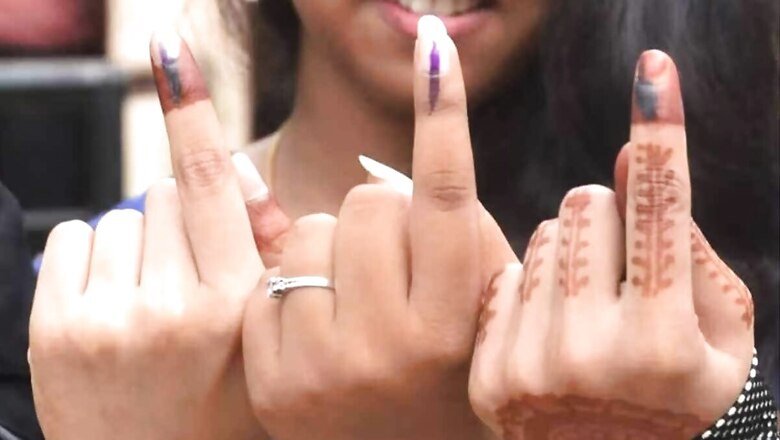
views
The idea of ‘One nation, one election’ proposed by Prime Minister Narendra Modi time and again – for holding simultaneous elections to Lok Sabha and state assemblies across India – has been referred to the Law Commission to work out a practicable roadmap and framework, Rajya Sabha was told on Thursday.
Union minister of state for law and justice, Arjun Ram Meghwal while responding to a question from BJP MP Kirodi Lal Meena said simultaneous elections will save time and money – money in terms of the public exchequer and time with regard to avoiding replicating administrative as well as law and order efforts in holding multiple elections. It will also save a considerable amount of time and money for political parties and candidates, which they spend in their election campaigns, the minister said.
“Further, asynchronous Lok Sabha and legislative assembly elections (including by-election) result in prolonged enforcement of model code of conduct with its concomitant adverse impact on developmental and welfare programmes,” he added.
Meghwal told the House that the parliament standing committee on personnel, public grievances, law and justice had examined the issue of simultaneous elections in consultation with different stakeholders, including the Election Commission of India. The committee has given certain recommendations on this matter in its 79th report.
“The matter now stands referred to the Law Commission for further examination to work out a practicable roadmap and framework for simultaneous elections to Lok Sabha and state assemblies,” he added.
Listing out major impediments/imperatives for synchronisation of Lok Sabha and legislative assembly elections, Meghwal said at least five articles need to be amended. These are Article 83 relating to duration of Houses of Parliament; Article 85 relating to dissolution of the House of the People by the President; Article 172 relating to duration of the State Legislatures; Article 174 relating to dissolution of the State Legislatures and Article 356 relating to the imposition of President’s Rule in the States.
He also said obtaining the consensus of all political parties and all state governments is also obtained.
“Requirement of additional number of EVMs/VVPATs, which would cost a huge amount, might be in thousands of crores. Considering that the life of a machine is only 15 years, this would imply that the machine would be used for about three or four times in its lifespan, entailing huge expenditure in its replacement every 15 years. Requirement of additional polling personnel and security forces,” he added.
The minister further said in South Africa, elections to national as well as provincial legislatures are held simultaneously for five years and municipal elections are held two years later. In Sweden, elections to national legislature (Riksdag) and provincial legislature/county council (landsting) and local bodies/municipal assemblies (kommunfullmaktige) are held on a fixed date, ie, second Sunday in September for four years. Further, in the UK, the term of the parliament is governed by the Fixed-term Parliament Act, 2011.















Comments
0 comment